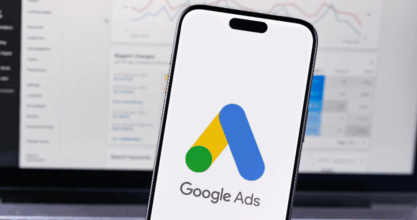Overreliance on paid ads: Finding balance with organic strategies

Social media ads have become the go-to strategy for many businesses. They promise fast results, measurable metrics, and instant visibility, all of which are appealing in today’s competitive, fast-paced market. However, putting too much weight on paid advertising can be risky. Without a strong organic foundation, brands may find themselves dependent on ever-rising ad costs and an unstable flow of leads. Partnering with a digital marketing agency Coral Gables business trust can help strike the right balance, ensuring paid ads are supported by sustainable organic strategies.
But this isn’t just words; recent research underscores the importance of a balanced approach. For instance, a study by Improvado highlights that SEO tends to be more cost-effective over the long term, with an ROI ranging from 500% to 1,300%. In contrast, paid ads typically offer a 200% ROI. Once a strong SEO foundation is established, a website can continue to attract organic traffic without ongoing costs for each visitor. This is why, to build long-term resilience, brands and businesses need to strike the right balance between paid campaigns and organic growth. Let’s dive deeper.
The appeal of paid ads in a fast-paced market
There’s no denying that social media ads work. They allow companies to target specific audiences, test creative ideas quickly, and scale visibility almost overnight. For small businesses, especially, paid ads can create the impression of immediate traction. This quick return feels like a win in an environment where growth is often judged by clicks and conversions, but this speed and convenience can also be deceptive. According to a 2024 survey by WordStream, over 70% of small businesses spend more than half their marketing budget on paid social media campaigns. This heavy dependence on ads leaves them vulnerable to rising costs, sudden changes in how platforms deliver ads, and fleeting attention spans, crowding out other strategies that seem less “flashy” but more sustainable over time.
When overreliance becomes a problem
The challenge arises when businesses treat ads as their only growth engine. Costs of advertising platforms continue to rise, and competition for attention is fiercer than ever. Over time, ads can generate diminishing returns, meaning the same budget buys fewer clicks or weaker engagement. In fact, a 2025 study from Taboola and Qualtrics found that nearly 75% of performance marketers are experiencing this very effect — diminishing returns on their social media ad spend.
The risks of relying too heavily on paid ads include:
- Shallow loyalty: audiences built only through ads often lack a deeper connection with the brand.
- Rising costs: advertising prices continue to increase, eating into profit margins.
- Weaker efficiency: ad performance declines over time, requiring more spend for less engagement.
- Platform dependency: if algorithms shift, policies change, or budgets tighten, businesses relying solely on ads may see their reach disappear overnight.
And in 2025, this risk is magnified. Platforms like Facebook and Instagram, once primarily spaces for social interaction, are now almost entirely shaped around advertising. What began as networks to connect with friends and communities has evolved into ad-driven ecosystems, where visibility increasingly depends on paid placements. This shift has narrowed the space for organic reach, highlighting the importance of strategies recommended by a digital marketing agency in Coral Gables, which can help businesses balance short-term visibility with long-term brand growth.
The power of organic growth
This is where organic strategies step in. SEO, content marketing, and community engagement may not deliver results as instantly as paid campaigns, but they build equity over time. Many business owners perceive paid advertising as more effective for immediate results, which can make SEO seem less urgent or visible in the short term. However, studies consistently show that organic search delivers one of the highest long-term ROIs compared to other channels. For instance, a 2025 report by FirstPageSage highlights that industries like real estate and financial services have seen SEO ROI as high as 1,389% and 1,031%, respectively, with breakeven periods ranging from 9 to 13 months.
Beyond ROI, SEO and organic strategies continue to deliver value over time. A single blog post or optimized page can keep driving traffic long after it’s published, while an active online community can generate word-of-mouth that no ad spend can replicate. Organic growth also enables credibility. Consumers tend to trust brands that show up consistently in search results or provide valuable content, not just ads. Additionally, with the rise of AI-driven search tools like Google’s AI features and ChatGPT, SEO has become even more important for visibility, as optimized content helps businesses appear in both traditional search results and AI-generated responses. It creates a deeper connection with audiences, one that can weather changes in ad platforms or economic conditions.
The real key is not to abandon ads, but to avoid making them the sole focus. Paid campaigns can be incredibly effective for launches, promotions, or rapid testing. But they should work hand-in-hand with organic strategies that ensure stability and long-term visibility. A digital marketing agency Coral Gables businesses trust can help implement this balanced approach: using ads to spark awareness and drive immediate traffic, while investing in SEO and content to nurture ongoing engagement. Over time, this combination reduces dependency on paid platforms and builds a marketing ecosystem that can adapt and grow. By combining the quick wins of paid advertising with the staying power of organic growth, businesses can create a strategy that delivers results and ensures resilience for the future.


